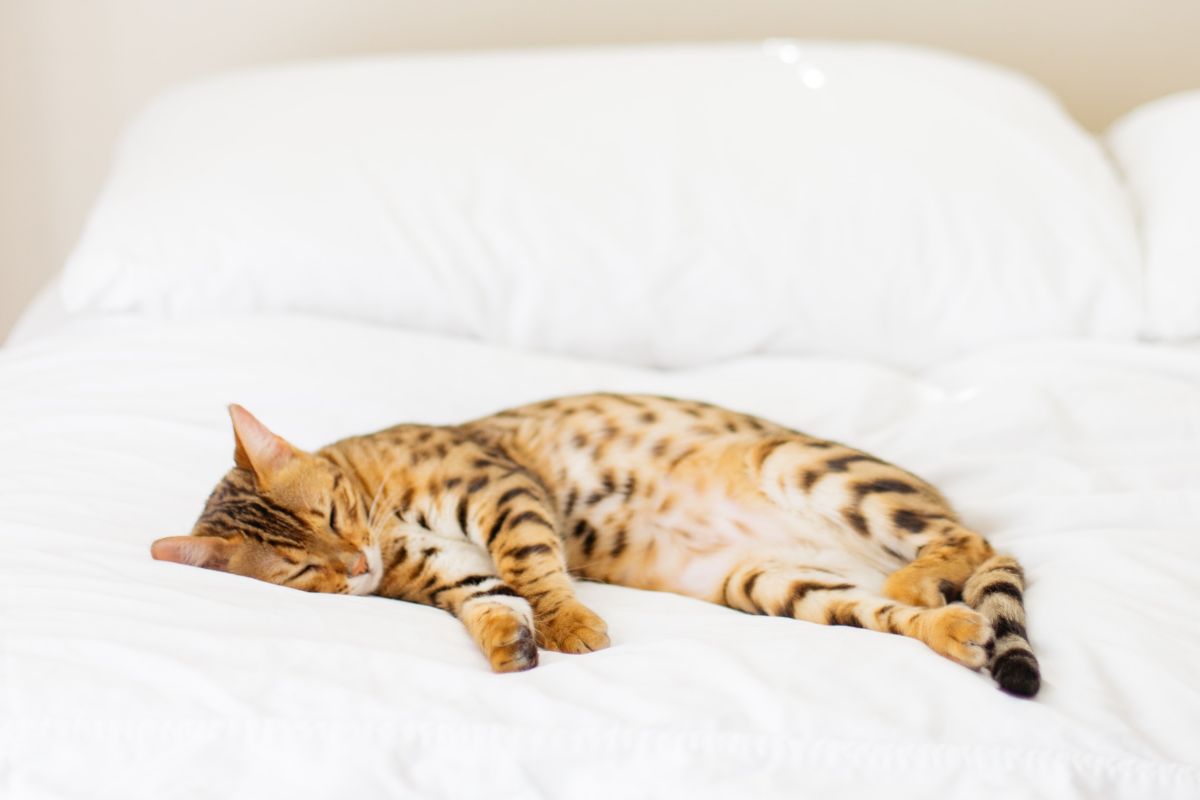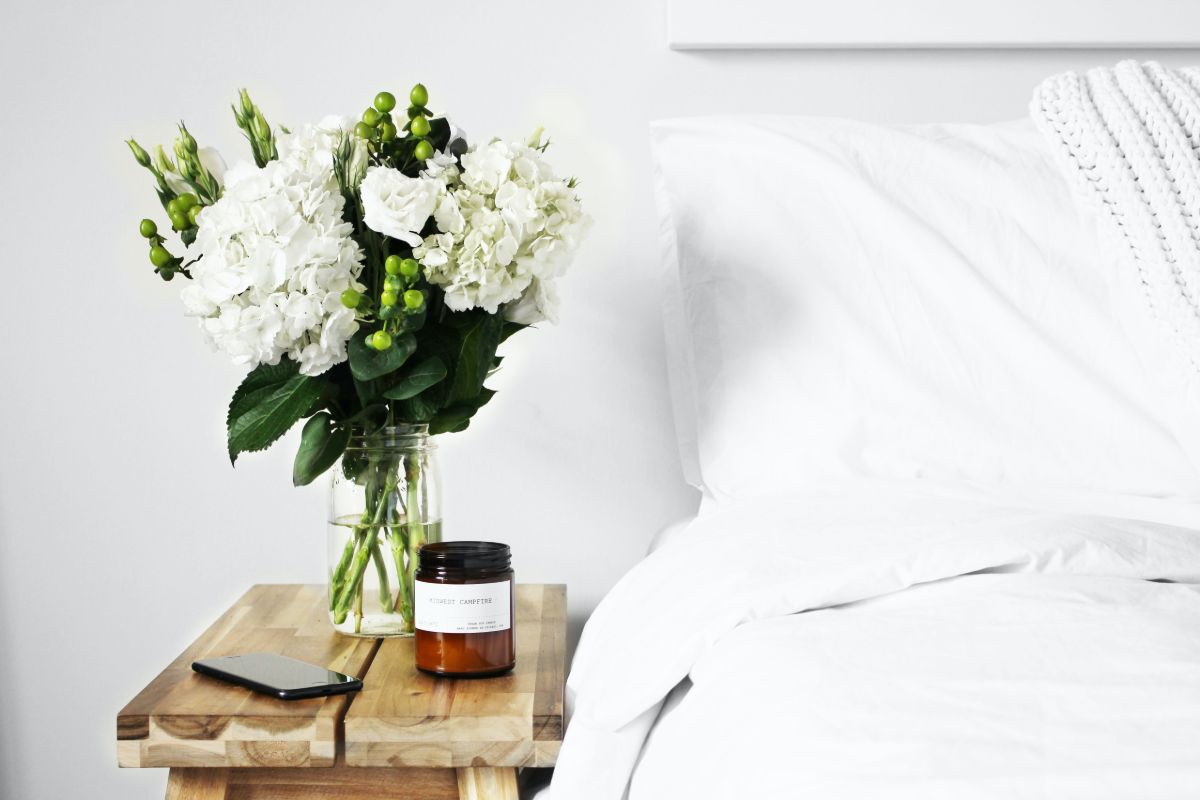 Paul Hanaoka
Paul Hanaoka
Sleep restores us and is essential for our mental and physical wellbeing. Poor sleep exacerbates depression and anxiety while also impacting our memory and our cognitions — how we think. It can also take a serious toll on your daytime energy, ability to concentrate, productivity, and ability to maintain a healthy weight.
Getting rejuvenating sleep is not always as easy as it sounds. Some people wake up tired and don’t feel rested despite getting the recommended hours. Some struggle to fall asleep each night while others wake up multiple times during the night. They sleep too much or too little. Whatever your concern may be, keep reading for tips to help with sleep.
We want sleep to be a rewarding experience. So having comfortable sheets and bedding and a beautiful welcoming room is important. Wear comfortable breathable clothes, set the room temperature to 65 degrees and close the shade so the morning light doesn’t wake you. Falling asleep is not like an on and off switch. It’s a gradual process of slowly drifting off. The best thing to do to fall asleep is to take a warm shower before going to bed. The gradual cooling of the body helps relax you to sleep.
The Basics
- Go to bed at the same time and wake up at the same time – even on weekends. Changing up your sleep schedule, even just an hour or two, can have an impact on your feeling rested and your energy levels throughout the day. Do your best to keep a regular sleep schedule.
- Turn off all screens an hour before bed. Try to keep electronics out of the bedroom. The light from the screen impacts your body’s ability to produce melatonin which helps you fall asleep.
- Eat a light dinner. Eating too much before bed requires your body to work harder to digest instead of being able to relax while you sleep. On the other hand, eating two little before bed can keep you awake out of discomfort.
- Avoid alcohol and nicotine use. These substances are known to affect sleep.
- Reduce caffeine. Caffeine can hide in teas, soda, and even chocolate! Think 1 regular cup of caffeinated coffee in a 24 hour period and try to stay under this threshold. If you feel the urge for more, opt for a decaffeinated beverage instead which still contains low levels of caffeine.
- Exercise regularly. It is best to get your workout in before 3 pm to avoid warming up your body.
- Don’t consume too many fluids before bed. This could wake you up throughout the night to go to the bathroom and therefore disrupt your continuous sleep.
- Don’t push the snooze button. The alarm goes off, you push the snooze button, go back to sleep, and repeat. Waking up and falling asleep makes our brain feel foggy. Instead, set your alarm for a later time and make a commitment to wake up in that moment.
- Get in sync with natural light patterns. Wake up with natural light and go to bed in darkness.
Develop a Relaxing Bedtime Routine
- Schedule 8 hours for your sleep. As mentioned earlier, have a set time to go to bed and wake up and stick to it every day, even on weekends.
- An hour before going to bed, start to get ready. Write down all the “to do” lists for tomorrow, from shopping lists to calling you mother, get it all written down.
- Prepare what you need to get ready in the morning. Choose your clothes and make sure everything is ready for your next day.
- If you have worries or concerns, take a few moments to write them down in a nice organized way. In fact, have a notebook or journal that you write down your thoughts and feelings and keep it in a private place.
- Get cleaned up. Take a warm shower, brush your teeth and perform all other hygiene habits.
- Remind yourself of some positive things. 10-20 minutes before you want to be asleep, turn off the lights and think of three things that happened throughout the day that made you joyful or grateful.
- Try sleep sounds. If you can’t quiet your mind at this time, have some low volume, relaxing instrumental music on a timer.
- Listen to a meditation app. To quiet your mind and wind down to sleep, try meditation.
Sleep is a vital part of our physical and mental health. If you are having trouble sleeping and think therapy might be right for you, you are welcome to call (760) 930-0886 to set up an appointment with me, Rakefet Benderly PH.D, a psychologist in Carlsbad. Together, we can heal in connection.
Dr. Benderly is a psychologist practicing in San Diego, CA. She provides psychotherapy services to residents of San Diego including Carlsbad, Encinitas, Solana Beach, Del Mar, Rancho Santa Fe, Fairbanks, Oceanside, Vista, La Jolla, San Marcos, Escondido, and La jolla.
Dr. Benderly specializes in treating: Depression & Anxiety, Grief & Loss, Relationships, Premenstrual Dysphoric Disorder, Assertiveness & Social Skills, Stress Management, and more.
Therapy offered in Hebrew and English.



